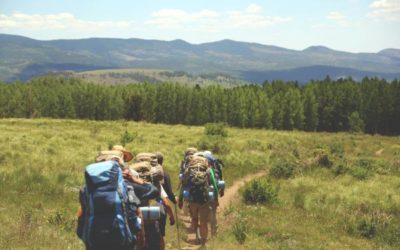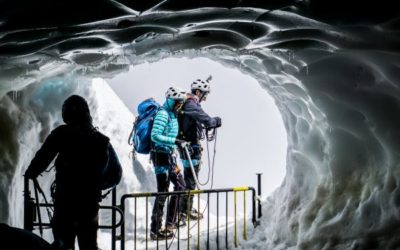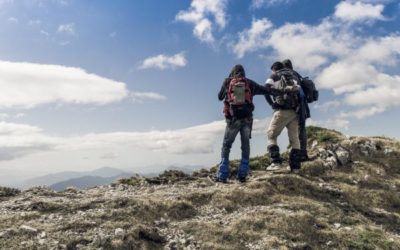 I have taken my taste buds for granted for my whole life. After enduring a two-day tooth ache, I concluded that one of my molars was begging for a root canal. The numbing shots hurt a bit, but everything went smoothly. Then came the most gloomy part of the whole experience…
I have taken my taste buds for granted for my whole life. After enduring a two-day tooth ache, I concluded that one of my molars was begging for a root canal. The numbing shots hurt a bit, but everything went smoothly. Then came the most gloomy part of the whole experience…
After paying my bill, I headed straight to Chick Fil-a to see if an eight count nugget meal and milkshake would make me feel better. As is my custom, I drove off, peeled back the seal on one of the BBQ sauce containers, dipped a nugget in that dreamy auburn-colored dip, and took a bite. In utter astonishment, and shuddering disappointment, I could not taste a thing!
My tongue was so numbed by the experience at the endodontist that it had become temporarily unable to perform fully the purpose it was design for. My taste buds were cut off from my brain, and my food tasted like nothing! It was in that moment that I realized I had taken my taste buds for granted my whole life.
THE VALUE OF EXPERIENTIAL LEARNING
Experiential learning is by far one of the best ways to gain deeper understanding of things that may have become all too familiar to us. This experience revealed to me that I take a lot of things for granted.
Here’s a basic law of life: we often don’t appreciate the value of something until it is taken away from us. When our health is taken away (i.e getting sick), then we immediately begin to appreciate good health. When comfort is taken away, we appreciate more deeply the way God has provided for us. When a member of our team who we’ve not appreciated fully leaves our team, we realize how important their contribution was.
AT TIMES GOD MAY TAKE COMFORT AWAY TO GROW OUR CHARACTER
In the past week, I went to Mexico to speak at a conference and due to the hot climate and presence of scorpions in the area, everyone slept in hammocks. I didn’t sleep well for 4 days because, although hammocks might be nice for an afternoon nap, I never quite adjusted to sleeping through the night, so I went without sleep. That experience made me all the more grateful for my bed at home. Then when I came home I got really sick from some water-born bacteria I had picked up and for 2 days and felt absolutely awful. My good health was taken away, so naturally I gained a deeper appreciation for good health, and antibiotics! And then today, a surprise tooth canal caused me to be in awe of how much I’m grateful for taste buds, because I lost touch with them temporarily and REALLY missed them! I think God might be teaching me something this week.
RELATED POST: HOW WILDERNESS EXPERIENCES ARE A MIRROR INTO OUR SOUL
EXPERIENTIAL LEARNING IN EXODUS 17
Wilderness experiences by their very nature strip away things that we take for granted. And the result, if we submit to the process and learn from it, is that we become more aware and grateful of God’s goodness to us. My friend Bob, from Rio Grande Bible Institute reminded me this week of a biblical example of how God intentionally removes comforts temporarily to accomplish a good purpose: In Exodus 17, God led the people of Israel to a desert location called Rephidim, yet the Scripture reads, “but there was no water for the people to drink. So they quarreled with Moses and said, ‘Give us water to drink.” The passage continues:
Moses replied, “Why do you quarrel with me? Why do you put the Lord to the test?” But the people were thirsty for water there, and they grumbled against Moses. They said, “Why did you bring us up out of Egypt to make us and our children and livestock die of thirst?” Then Moses cried out to the Lord, “What am I to do with these people? They are almost ready to stone me.” The Lord answered Moses, “Go out in front of the people. Take with you some of the elders of Israel and take in your hand the staff with which you struck the Nile, and go. I will stand there before you by the rock at Horeb. Strike the rock, and water will come out of it for the people to drink.” So Moses did this in the sight of the elders of Israel. And he called the place Massah and Meribah because the Israelites quarreled and because they tested the Lord saying, “Is the Lord among us or not?”
EXPERIENTIAL LEARNING IS GOD’S IDEA
Wilderness leaders practice intentionality because God models intentionality. One of the primary lessons from this passage is that God intentionally removes comforts at times to deepen our trust in him. This is not mean or insensitive of God. In fact just the opposite, it is the most loving thing he could do. God intentionally took water away temporarily from his people for the purpose of deepening their gratitude. God knows that if we never experience trials or hardship then we won’t be thankful for all that he provides for us. Ungratefulness is seriously hazardous to our spiritual health. It causes us to drift away from the shores of his grace and float off into a dangerous sea of self-sufficiency.
Wilderness leaders exercise intentionality by removing comforts or facilitating experiences that take people out of their comfort zone to root out self-sufficiency and pride. This process creates a platform for learning where genuine gratitude becomes possible. It’s good medicine! When gratitude takes root in one’s heart, this bears all sorts of good fruit: joy, peace, self-control, patience, etc (See Gal. 5:22).
RELATED POST: Controversy over the Comfort Zone Model? | A Response
REFLECTION QUESTIONS
1. Has God removed something from your life that you have taken for granted? How are you responding to his intentionality in your life? Are you responding like the Isrealites at Massah and Meribah, or are you responding more like Jesus who prayed in the Garden of Gethsemane: “Father, if you are willing, take this cup from me; yet not my will, but yours be done.” (Luke 22:42)
2. How could you facilitate a wilderness experience for a small group that through some creativity and intentionality could expose for your group some things that they are taking for granted?
3. Please comment below how you resonate with this post!




